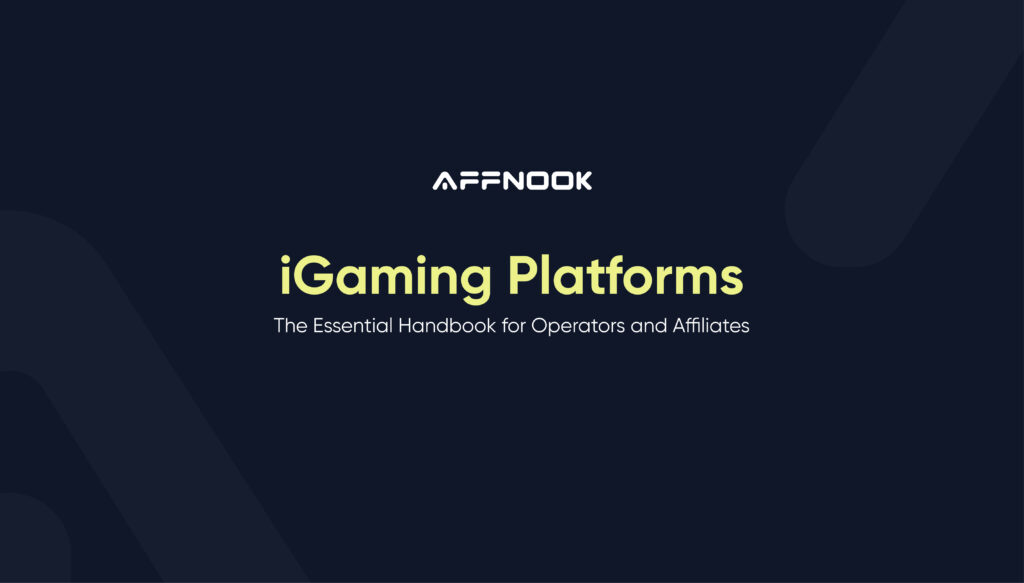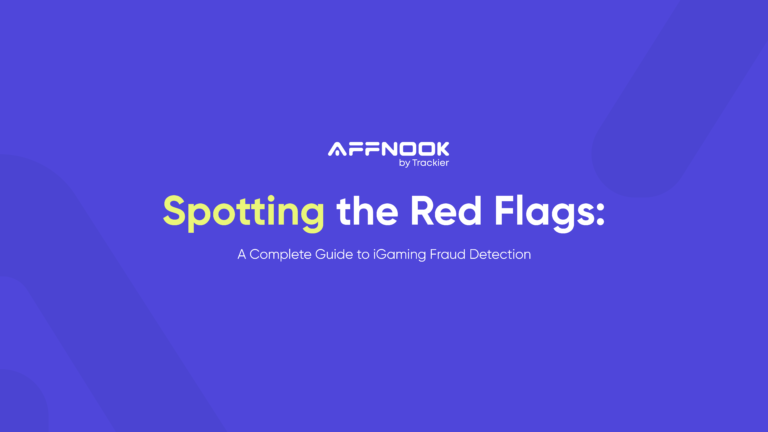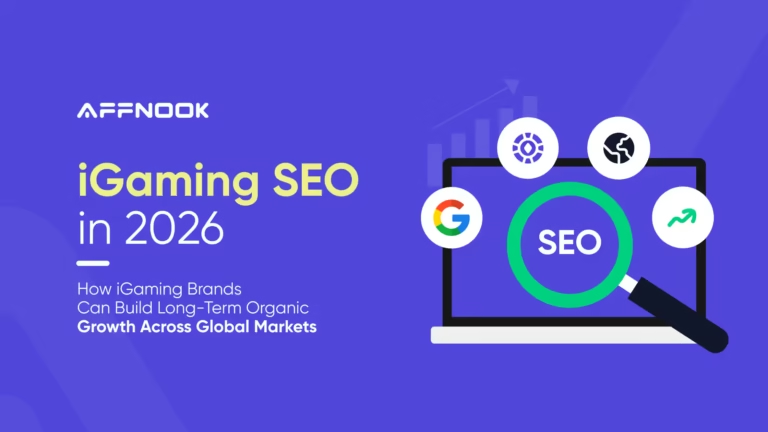A booming sector.
A ballooning segment.
A supreme revenue driver.
If you ask a casual stakeholder in the iGaming industry to describe it in a few words, one of these might be the result.
Behind this growth, platforms built for iGaming play a crucial role. How’s that? They support the entire working model of the iGaming industry, shouldering the responsibility for a well-oiled online casino and gambling sector.
The amount of real money involved in this ecosystem is massive. As part of any introduction to the U.S. iGaming market, it’s important to understand the scale. According to Statista, the global gambling market revenue is projected to reach US$477.30 billion in 2025.
Consequently, as a key player in this marketplace, based on your business model, your platform or the platform you’re using could be the difference between simply existing and standing out (with both feet).
In this guide, you will explore the main components of platforms, key features to prioritize when you’re searching for a product, and how they contribute to the business goals of operators and brands.
What is an iGaming Platform?
Imagine a train running across tracks, whistling away, taking passengers to their desired locations. What’s driving it? It’s the engine (sometimes more than one) that ensures things keep moving at all times.
That’s what a platform does in iGaming. It is the central component of software that runs an internet gaming company. It can take many forms, such as a place where games are hosted, the games themselves, a payment gateway or even a system to manage marketing for your business.
iGaming platforms are the most basic, grounding element in online gambling. Their role is fixed, no matter their typology: offering all the infrastructure and vital tools to keep operations smooth. This entails:
- Running a range of games (such as slots, sports betting, and live casino),
- Handling player accounts,
- Processing payments,
- Making sure security and legal requirements are met, and,
- Providing data insights to maximise efficiency.
Whether you’re building an online gambling business or shifting the framework of your existing one, keeping your platform whole and stable is crucial. Keep everything functioning, from revenue management to user experience, so you can concentrate on engagement and growth.
The Major Types of Online Gambling Platforms
Which one should you keep? Which one to optimise? And which one to scale up? Knowing the formats online casino platforms appear in will make it easier to make all these important decisions.
1. Casino Platforms
Think chips, but hands-free. Casino iGaming platforms offer a wide range of games, including slots, table games, live dealer experiences, and virtual games, through apps or websites (and sometimes both).
And it all happens on the back of robust integrations. Leading game providers like NetEnt and Microgaming are connected to whatever casino platform is in use, to ensure a high-quality gaming experience for users.
The deciding factors? Smooth UI, easy navigation, delightful graphics, and quick loading times — all with the promise of a bug-free, secure experience.
But the platform architecture doesn’t end here. This type of platform-based play must be equipped with essential features such as:
- Random number generators (RNGs) for fairness,
- Jackpot systems, and,
- Promotional tools to enhance player engagement.
2. Sports Betting Platforms
You’re looking at platforms where sports bets, in-play wagers, and prop bets are placed. The offerings usually include pre-match and live betting options for various sports events.
Players, however, have so many options to choose from. The,n how can sports betting iGaming platforms attract more users? Features like real-time odds, dynamic bet slips, and data feeds from providers like Betradar and Betgenius can deliver a more interactive and data-driven betting experience.
By keeping live stats and key game data visible on the same dashboard, your platform can bring up the engagement time, secure higher betting amounts and build a holistic betting environment for novice and experienced bettors.
Operators of sports betting platforms often offer (and avid bettors demand) a wide range of sports, from football and basketball to esports and niche sports, to attract diverse player groups.
3. Hybrid Online Gambling Platforms
The best of both worlds? Check!
These software mashups integrate multiple gambling verticals that allow operators to offer casino games, sports betting, and poker within a single ecosystem.
By delivering a seamless and comprehensive gaming experience, they enhance player retention and also maximize revenue opportunities.
What can possibly be the ideal use case for such iGaming platforms?
Imagine you’ve got a casino or sportsbook that has a preexisting set of loyal customers. However, you’re looking to expand further. That’s when you should consider adding more gaming options like sports betting, live casino, poker, and esports in the mix.
It allows you to hit two birds with a single stone: increase revenue streams and give players something new to try.
Here’s another operating style: land-based casinos can also make the transition into the virtual realm through hybrid platforms. This will ensure regular and consistent patrons can play online at any time.
Consequently, operators and brands can remain competitive in the growing iGaming industry.
4. iGaming Affiliate Platforms
Beyond basic architecture, there are support functions which require platforms in online gambling. One of them is affiliate marketing — a key marketing technique for this industry.
What does such a platform do?
iGaming affiliate marketing platforms support operators and brands in managing their affiliate programs effectively by tracking referrals, commissions, and marketing performance. Everything across the entire length and breadth of iGaming affiliate marketing can be run through such iGaming platforms.
One of the key players in this sidequest is Affnook. It guarantees comprehensive solutions for affiliate programs of all shapes and sizes in the iGaming space. With the Affnook dashboard, you’re sure to be in control of all major affiliate management functions, including (but not limited to):
- Onboarding affiliates,
- Managing affiliate marketing campaigns,
- Set up commission structures,
- Share creatives and media with partner marketers,
- Check performance and conduct analysis,
- Filter real conversions from fake ones
On a single dashboard.
But it doesn’t stop there. It goes one step further, offering real-time fraud detection and prevention at no extra cost. You’re free to either ‘block’ or ‘mark’ fraud instantly, before it impacts your affiliate marketing budget.
Why does it matter, you may ask. Well, for the simple reason that affiliate marketing is a crucial strategy for acquiring players. 74% of operators and brands rely on it. 30-40% of new registrations occur as a result of this medium. High volume, high impact, and major budgets – it is all at stake.
5. iGaming Payment Platforms
A seamless payment experience is critical for player satisfaction. Time-taking transactions, with repetitive failures and high latency, are a recipe for disaster. Looking to lose customers? That’s the fastest way.
Payment-oriented iGaming platforms are vital in avoiding such issues. They handle deposits, withdrawals, and financial transactions securely and quickly.
They support various payment methods — including credit or debit cards, e-wallets, and cryptocurrencies — while ensuring compliance with anti-money laundering (AML) regulations and fraud prevention standards. You undoubtedly get more than two birds with this single stone.
6. Mobile-based Online Casino Platforms
Say hello to faster internet speeds with 5G, increased smartphone usage across the world and unprecedented accessibility to everything on the internet. It has given life to the biggest transformation in how people interact with platforms, ergo mobile gaming on the rise.
Designed to deliver a smooth and engaging gaming experience on smartphones and tablets, they are built to cater to the handheld experience. Such platforms are crucial for quick engagement formats such as:
- Sports betting,
- Novelty Betting,
- Horse Race Wagering,
- Lottos,
- Slots, and,
- Bingo.
If you’re building for the future, your strategy should either begin with or eventually get to mobile-optimized interfaces, push notifications, and app-based gaming experiences. The time is certainly ripe to tap into the expanding mobile gambling market.
7. White-Label & Turnkey iGaming Platforms
If you’re looking to enter the online gambling market with minimal development effort, white-label and turnkey solutions are the platforms for you.
Many vendors in the market provide ready-made platforms, which can be used with little to no technology input from your end. Novices and non-tech background start-up enthusiasts, this could be the perfect solution for you.
The USP is quite obvious: white-label software allows operators to release branded iGaming businesses quickly.
Turnkey solutions, on the other hand, offer a fully operational setup, including integrated games, payment processing, and regulatory compliance support. This is an even easier-to-use format for iGaming freshers seeking a speedy and hassle-free market entry.
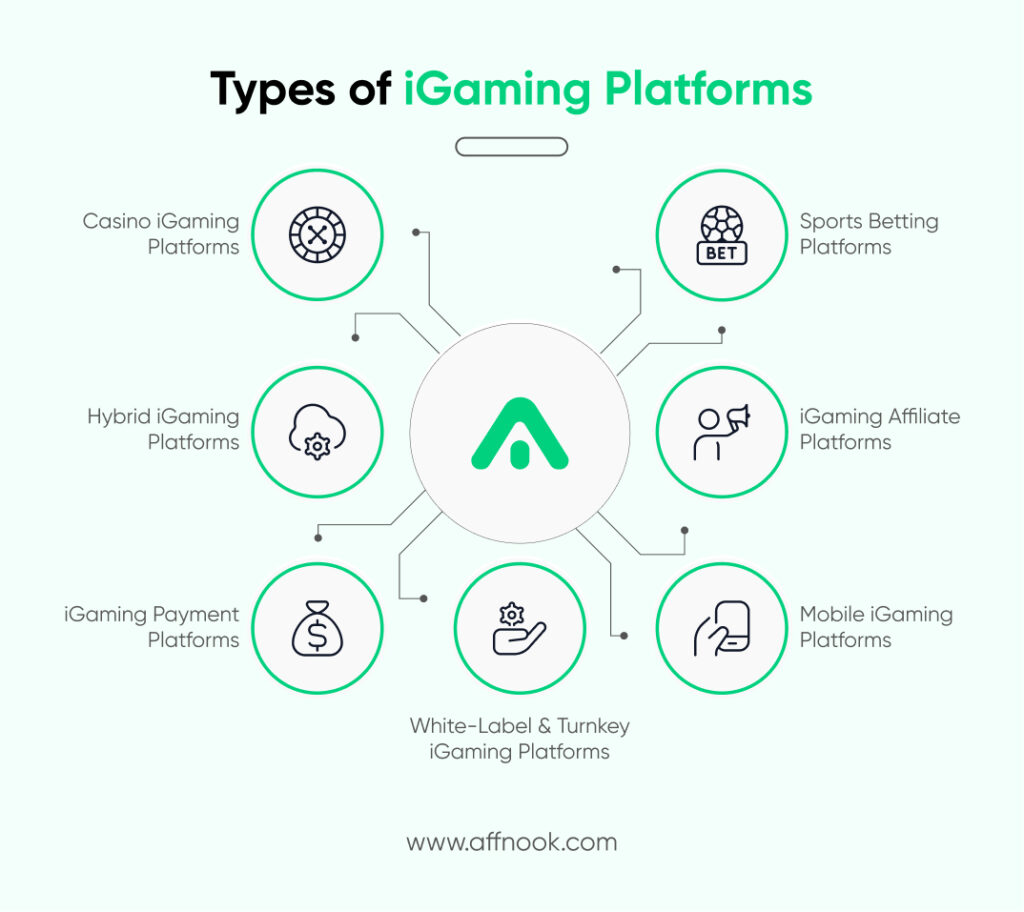
Key Features of an iGaming Platform
1. Game Aggregation and API Integration
It’s essential: your platform should have the ability to offer a wide range of games like poker, bingo, slots, and virtual sports. Of course it isn’t a one-man job. In fact, it doesn’t even need to be. API-based software solutions can help.
Partnering with top game providers to seamlessly deliver a diverse gaming experience. The benefits are two-fold:
- Your setup can offer unique experiences to various age groups and demographics.
- An expanded portfolio of offerings ensures users always have something to come back for. Retention, after all, is what helps the bottom line.
APIs allow operators to plug in multiple game providers into iGaming platforms without almost any manual development. The benefits?
- Real-time updates,
- Smooth gameplay, and,
- Centralized management of game offerings, among others
What’s more? An API can provide access to player data, game performance analytics, and compliance tools — all taken care of at the server level. This means operators can work on user engagement and offer improvement by making note of KPIs.
2. Smart Betting Modules
For operators in the sports betting space, platform strength lies in delivering up-to-the-minute odds, varied betting markets, and data-rich dashboards that can handle the fast pace of modern sports.
What adds depth to this module?
Well-curated bet suggestions based on a player’s interests and past activity. Let’s say someone regularly wagers on NBA games — they might appreciate a timely nudge toward a well-matched prop bet.
Or during a live football match, the platform could surface a set of quick-access betting options based on what’s happening on the pitch.
Equally important is the ability to keep play responsible. A robust system flags unusual betting activity, keeping a watchful eye on erratic patterns and helping prevent unwanted losses. It’s a practical feature that keeps trust high — and habits healthy.
3. Payment That Just Works
There’s little room for delay when real money is on the line. A dependable payment setup ensures every transaction, deposit or withdrawal, goes through smoothly.
The best platforms offer an array of payment options: cards, e-wallets, bank transfers, and even cryptocurrencies. Players can choose what works for them, while operators benefit from integrated systems that reduce downtime and transaction errors.
When payments are seamless, users stay focused on gameplay and keep coming back.
4. Clear Paths, Smooth Clicks
A platform’s success often comes down to how simple it is to use. Clunky interfaces lose players. Quick-loading pages, clean navigation, and a straightforward layout help keep users engaged from first click to final wager.
The same principle applies to text. Instructions and information should be plainspoken and direct, especially for those encountering the platform for the first time. A design that thinks one step ahead of the user can make a world of difference in how long they stay.
5. A Well-Built Player Account System
Managing player identities is the foundation of a secure and credible platform. From sign-ups and KYC checks to data encryption and account monitoring, every step should run like clockwork.
What’s expected? No duplicate profiles, no login errors, no security hiccups. The system should be watertight. Only verified users get in, and everything stays in compliance with the laws of the land.
6. Stay Within the Lines
No operator can afford to sidestep regulations. Compliance with legal and jurisdictional guidelines isn’t just about avoiding fines — it’s about long-term viability.
A good platform equips operators with tools to meet these standards. Think self-exclusion options, deposit limits, and solid age verification protocols. In regions with stricter gambling laws, these checks need to be even more rigorous. It’s the cost of doing business, and doing it right.
7. One Platform, All Screens
Players today move between devices without thinking twice. A spin started on a desktop might finish on a mobile. A bet placed on a tablet might be tracked from a laptop.
Your platform needs to follow suit. Game progress should carry over, visuals should adjust automatically, and performance must remain consistent, no matter the screen. Flexibility is now table stakes.
8. A Human Touch, Backed by Systems
Operators should offer around-the-clock help that players can count on. But there’s more.
A well-integrated customer relationship management (CRM) system keeps everything streamlined. From ticket tracking to follow-up communication, it ensures no query falls through the cracks. Users get faster answers; operators get a better handle on service.
Choosing the Right iGaming Platform Provider
All the features in the world won’t matter if the platform you choose isn’t built for your specific needs. Here’s what to look for when you’re picking a provider:
1. Licensed, Legal, and Legitimate
Regulatory clarity is non-negotiable. The platform you work with should be certified by recognized authorities such as the UK Gambling Commission, Malta Gaming Authority, or Curacao eGaming. This shields you from future trouble—and earns player trust from day one.
2. Games That Keep Players Coming Back
Variety is vital. Whether it’s slots, poker, virtual sports, or live dealer tables, your platform should offer integration with leading developers like Evolution, NetEnt, and Pragmatic Play. More games mean more chances to engage.
3. Fast, Flexible Payment Options
Players don’t want to wait. Your chosen platform should support a range of secure payment methods, complete with anti-fraud systems and fast processing times. Bonus points if it supports newer methods like crypto or instant bank transfers.
4. Mobile-First Capability
With most gaming now happening on mobile, any platform that doesn’t prioritize smartphone usability is lagging behind. Responsive design, touch-optimized interfaces, and app support are no longer optional.
5. Built-In Safety
Trust is everything. Look for platforms that come equipped with security standards like SSL encryption, two-factor authentication, and real-time fraud checks. Every click, every bet, every login—safe by design.
6. Room to Grow
Your platform should scale as your business grows. That means modular builds, custom branding, and the flexibility to add new tools or verticals over time. What works for a niche operator today should also be fit for a multi-region brand tomorrow.
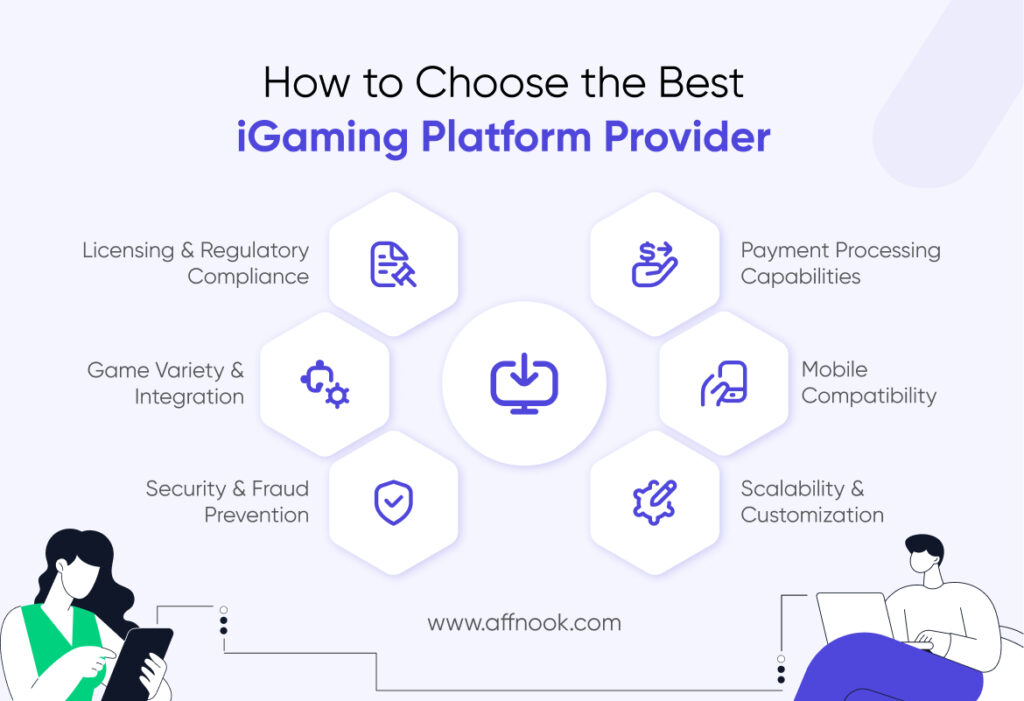
Seek Out Industry-Leading iGaming Platforms
A standout should not be seen through the lens of flashy visuals and top-notch pitch decks. The leading platforms in any given field are likely to provide the best outcomes for your business. This means better support, more innovation, quicker bug fixes, and higher platform stability.
We can see how this is applicable through an example. Let’s take the instance of Affnook in the iGaming affiliate management software space. Its features are built specifically for online gambling operators and brands, which means every offering it has is created in the form of a solution to pre-existing problems within the sector.
Real-Time Tracking
The challenge? Delayed visibility of performance data leads to missed opportunities for brands and operators.
How does real-time tracking help? Affnook gives clients and their affiliates minute-by-minute updates on clicks, conversions, key KPIs, and ROI. Both cohorts can act quickly to fine-tune campaign outcomes as they come in.
Automated Payouts
The problem is very simple: Repeat tasks like invoicing take up a lot of time and are prone to human error.
Here, Affnook acts as a solution by automating the process. This ensures timely payments, reduces manual work, and builds trust with partners by overcoming delays.
Fraud Detection & Prevention
Campaign integrity is often challenged by bots and fake traffic, which bleed budget and skews performance metrics.
To limit this, Affnook includes built-in fraud detection tools that flag suspicious activities such as fake leads, bot traffic, and duplicate conversions. Affiliates are protected from revenue loss, and genuine engagement is rewarded.
Seamless Integrations
In 2026, disconnected silos can keep brands from growing and cause operational difficulties.
Affnook’s two-way API connects effortlessly with various third-party platforms. It promotes smooth workflows and enhances all-around marketing efficiency.
Conclusion
iGaming platforms are the backbone of the online gambling industry, providing essential tools for operators to run secure, engaging, and profitable businesses. Choosing the right platform ensures seamless operations, regulatory compliance, and enhanced player experience.
Key factors like licensing, game variety, payment options, and scalability are crucial for long-term success. A reliable provider like Affnook can streamline affiliate marketing, boost engagement, and maximize revenue.
With the industry evolving rapidly, selecting a platform that aligns with your goals can help you stay competitive. Ready to launch? Partner with a trusted provider and start your iGaming journey today!
